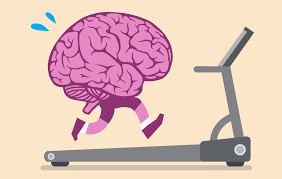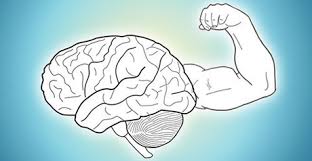Welcome to this series about Exercise. Enjoy the precepts and principles. Enjoy the many benefits of good Exercise. Practice it well.
Everyone knows that exercising boosts your strength, stamina, balance, and flexibility, but did you know it also improvers your memory as well? This has been borne out in several research articles, including one out of Ireland that looked at the benefits exercise has on boosting memory.
The Results of the Study
In the study, young men were recruited for an exercise study. Initially they were told to remember the names and faces of people in a lineup that they saw only briefly. After trying to memorize the lineup, they were asked to remember as many names and faces that they could.
As a comparison, the researchers allowed 50 percent of the young men to rid a stationary bicycle and were asked to ride the bicycle as strenuously as they could until they reached the point of exhaustion. There was a control group, which included the other half of the men in the study. Controls just sat still for a half hour.

After the two groups did what they were told to do, they were asked again to memorize names and faces in a lineup and were asked to memorize them as quickly as possible. This was to see if the exercise group could better memorize the names and faces any better than the control group.
The end result was that those who had exercised on the stationary bicycle remembered more names and faces when compared the control group who did not exercise. The scientists believed that it was the exercise done by half of the men that made the exercise group do better on the test.
As part of the test, the participants were asked to give a sample of their blood in order to see if there was a biological reason for the enhanced memory in the exercise group. The results were somewhat surprising.
Those men who exercised on the stationary bicyclist had higher levels of brain-derived neurotrophic factor (BDNF), which is a chemical in the brain that maximizes the ability of brain cells to function in several different capacities. Those men who did not exercise had no change in the levels of BDNF in their bloodstream.
This lead the researchers to conclude that exercise, which increases BDNF levels, played a role in the cognitive functioning of those who exercised during the test. They were not, however, able to understand exactly where in the brain the BDNF took effect nor could they identify how BDNF affects memory and thinking behavior.
Other Studies
This isn’t the only study done on exercise and the boosting of memory. There have been studies done on humans and animals both and studies done on older subjects versus younger subjects. A study out of Brazil was one of these studies.
In the study, older rats who normally did not do any exercise were made to exercise by running for five minutes per day for several days per week for total of 5 weeks of increased exercise. The researchers found that there was a unique chain of biochemical processes that stimulated the areas of the brain mostly associated with memory. The rats also had an increase in BDNF levels.
In the end, those older rats who exercised did as well as young rats in a memory test for rats. The researchers came to the same conclusion as seen in the above study: that an increase in BDNF during exercise positively affected the memory of the exercising rats.

Still another study was also done on animals (rats). The study was done out of the University of California, Los Angeles, at the Brain Injury Research Center. The study used adult rats who were able to run as much as they wanted to for one week. Those rats had their blood drown and the BDNF levels were measured against rats who were left sedentary. The exercising rats had higher levels of BDNF and had better memory scores on memory testing.
Studies were also done on humans.
In one study, published in Translational Psychiatry, researchers out of Stanford University did a research study on almost 150 men who were experienced pilots. The pilots were asked to perform in a cockpit stimulator 3 times over a period of 2 years.
As the participants aged, their overall performance declined when they did the cockpit simulation task. This decline was attributed to the advancing age of the pilots, which is a natural aspect of aging.
Interestingly those men that had decreased levels of BDNF in their brains from a genetic tendency toward having low BDNF level performed more poorly on the cockpit simulation test when compared to those who had normal or elevated levels of BDNF in their blood.
Notice that this study did not directly involve exercise but instead focused on BDNF levels. Even so, since BDNF levels rise with age, it is likely that a test involving exercising the men would have had the same result.
Besides BDNF, there are other neurochemicals that seem to be related to memory and cognition; however, BDNF seems to be one of the major neurochemicals affecting memory.

BDNF and Exercise
While BDNF improves with exercise and this secondarily improves memory, men and women who have a genetic predisposition toward low levels of BDNF should probably exercise more frequently than those who have normal BDNF levels. Unfortunately, people aren’t routinely screened for their BDNF levels so it is a good idea to exercise for better memory even if you don’t know whether or not you have low BDNF levels.
For more blogs please go to www.NicksDigitalSolutions.com and choose Nicks blog.
For E-Learning material, please go to www.NicksDigitalSolutions.com and choose E-Learning Shop and, in particular, the Health and Wellness, Pathways to Success or Seniors options.
Nick Thorne is the founder of NicksDigitalSolutions Limited a company that specialises in Education, Training and Writing. He lives in Levin, New Zealand
